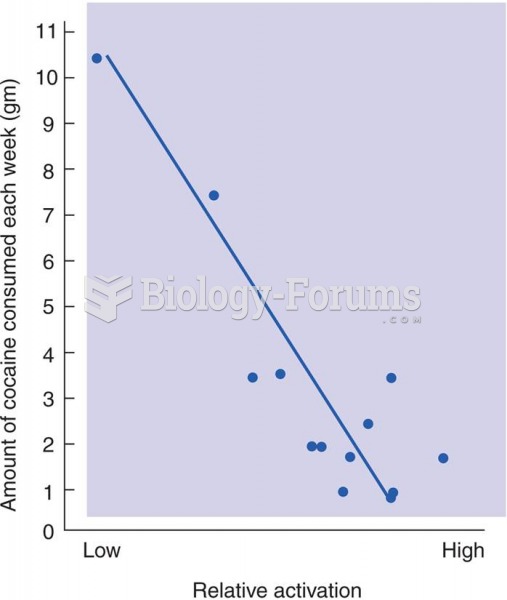|
|
|
Asthma cases in Americans are about 75% higher today than they were in 1980.
A cataract is a clouding of the eyes' natural lens. As we age, some clouding of the lens may occur. The first sign of a cataract is usually blurry vision. Although glasses and other visual aids may at first help a person with cataracts, surgery may become inevitable. Cataract surgery is very successful in restoring vision, and it is the most frequently performed surgery in the United States.
After 5 years of being diagnosed with rheumatoid arthritis, one every three patients will no longer be able to work.
If all the neurons in the human body were lined up, they would stretch more than 600 miles.
Egg cells are about the size of a grain of sand. They are formed inside of a female's ovaries before she is even born.







